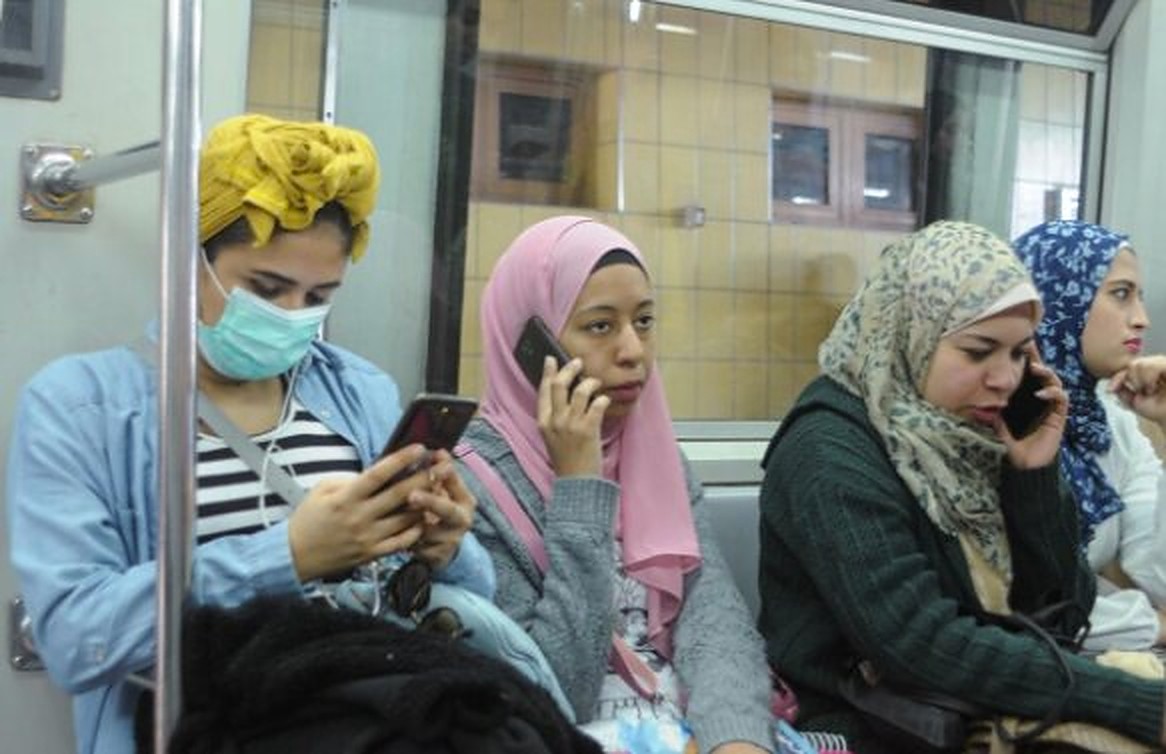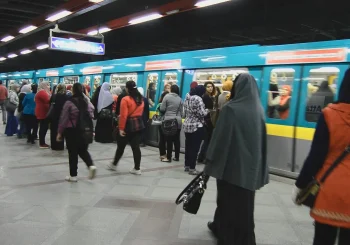Update: the Egyptian President announced the shutting down of Egypt’s schools and universities for two weeks, and announces EGP100 Billion coronavirus fund.
The past week has seen the number of coronavirus cases in Egypt slowly increase, with the Ministry of Health confirming nearly 100 people in Egypt have contracted the mysterious disease now dubbed COVID-19.
Among the 100 recorded cases, there have been two deaths: a German tourist in the Red Sea resort town of Hurghada and a 60-year-old Egyptian woman from Dakhalia governorate who was admitted to Al Mansoura Sudr hospital.
Not much is known about the 60-year-old woman, but it did raise serious concerns about the spread of the coronavirus in the community. While the Ministry of Health and the regional office of the World Health Organisation have maintained that all cases so far have been ‘linked to previous infections,’ notably the outbreak on a Nile cruise, it is possible and likely that the coronavirus is already spreading in the wider community – as has been the case in countries around the globe.
Yet, Egypt remains largely placated and happy to carry on. Though the government has been raising awareness and has suspended some large gatherings such as religious festivals, concerts, and exhibitions, life largely remains the same (with the exception of the ‘Dragon Storm’ which brought some major cities to a standstill).
Schools and universities remain open. Shopping centres, places of worship, sporting clubs and more continue to attract thousands of Egyptians despite fears. Tourist sites and resorts – a hotbed for the spread of the coronavirus given that the countries that Egypt relies on the most for tourism have all been severely affected – also continue to operate as normal.
Egypt is ‘open for business’ and ‘welcoming of all tourists’ as Egypt’s Ministry of Antiquities and Tourism alluded to earlier this week in a statement denying tourism sites have been shut down.
Yet, as has been the case in other countries across the globe, this is simply not enough. The goal is not to prevent people from getting infected, but to minimise the spread and how many people contract the disease. If one million Egyptians are infected, statistics show that at most 100,000 people would need hospitalization. This may severely strain Egypt’s medical resources, but Egypt and its economy would survive. But, what if the disease continues to spread and infects 10 million Egyptians as a result of a slow appropriate response? The country’s health and other infrastructure would crumble. Society may fall. We’ve already seen these pressures in Italy, where there are suggestions people of certain ages will not be provided medical care (such as respirators) and some people have been forced to live with their dead relatives because authorities do not have the resources to remove the bodies.
In countries like Vietnam, which has recorded less than 50 cases, restaurants, bars, tourist sites and more have been ordered to shut down for two weeks to contain the spread of the virus. Schools and universities have also been closed for six weeks and will remain closed until further notice. The community is on high alert, ready and willing to act together to minimise the spread of the disease.
It’s time Egypt takes a similar – if not more a more stringent – approach. Egypt should require all arrivals to self-isolate for 14 days – and should implement measures to ensure this is happening. Schools, universities, places of worship and all other non-essential places should be shut down indefinitely.
Tourism sites should also shut down. Reports suggest dozens of foreigners – from Hong Kong to the United States of America and France – contracted the disease in Egypt. While this will harm Egypt’s economy given its reliance to some extent on the tourism industry, it will also save it from significant damage and prevent Egypt being seen as a country that did not care about the health of its citizens and visitors because tourism money mattered more.
The government should also consider declaring a wider health emergency that requires people to remain indoors and avoid all public spaces for a period of time. This is to prevent people – who may be told that their schools, universities, or places of work will be temporarily shut down – from simply going out and gathering in public areas.
Egypt’s population is 100 million. If the virus is already appearing in cities like Mansoura – far from major tourist sites and where the poverty rate is higher than other major cities – then it may already be too late to prevent a significant number of Egyptians becoming infected. But it is not too late to prevent the country from falling into chaos.
*The opinions and ideas expressed in this article do not reflect the views of Egyptian Streets’ editorial team. To submit an opinion article, please email [email protected].







Comments (0)